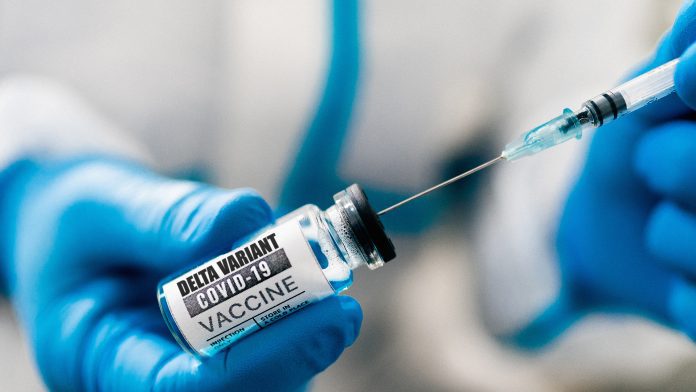
Even after the implementation of widespread vaccination protocols, robust infection control measures will need to be enforced to prevent the spread of COVID-19 variants, a new study has suggested.
The research conducted by experts from the University of Cambridge has highlighted that the ever-evolving and mutating COVID-19 variants will not be effectively controlled by vast vaccination programmes alone, with infection control measures being vital to mitigating their prevalence.
This is due to their propensity to evade immune responses. For example, the SARS-CoV-2 Delta variant, which is now the most prominent of the COVID-19 variants in countries such as India and the UK, has likely spread due to its increased infectivity and ability to evade neutralising antibodies.
The research is published in Nature.
How are COVID-19 variants created?
As SARS-CoV-2 replicates, there are errors in its genetic makeup that cause it to mutate. Some of these mutations make the virus more transmissible or infectious, while others aid in evading immune response, making vaccines less effective, with others having no effect at all. One particular variant, the B.1.617.2 Delta variant, was initially found in late 2020 in India and has since gone on to spread around the globe, becoming responsible for nearly all new cases in the UK.
Professor Ravi Gupta from the Cambridge Institute of Therapeutic Immunology and Infectious Disease at the University of Cambridge, one of the study’s senior authors, said: “By combining lab-based experiments and epidemiology of vaccine breakthrough infections, we’ve shown that the Delta variant is better at replicating and spreading than other commonly-observed variants. There’s also evidence that neutralising antibodies produced as a result of previous infection or vaccination are less effective at stopping this variant.
“These factors are likely to have contributed to the devastating epidemic wave in India during the first quarter of 2021, whereas many as half of the cases were individuals who had previously been infected with an earlier variant.”
Analysing effects on immune response
The Cambridge team extracted serum from blood samples collected as part of the COVID-19 cohort of the NIHR BioResource to analyse the Delta Variant’s ability to evade immune response, with the samples coming from people who had previously had COVID-19 infection or had been vaccinated with the Oxford/AstraZeneca or Pfizer vaccines. The serum contains antibodies raised in response to infection of vaccination.
The researchers ascertained that the Delta variant was 5.7-fold less sensitive to the sera from individuals who had been infected previously and as much as eight-fold less sensitive to vaccine sera than the Alpha variant. This means that it takes eight times as many antibodies from an infected individual to block the Delta variant.
Furthermore, in a study of 100 infected healthcare workers at three Delhi hospitals – the majority of which has been full vaccinated – researchers discovered that the Delta Variant was transmitted between vaccinated staff significantly more frequently than the Alpha variant.
What makes Delta so deadly?
SARS-CoV-2 has spike proteins on its surface that bind to ACE2 – a protein receptor located on the surface of cells in our body. Both of these proteins are then cleaved, which enables genetic material from the virus to enter the host cell, manipulating the host cell’s machinery so that the virus can replicate and spread.
To understand how the virus reaches the respiratory tract, the team employed 3D airway organoids, which are mini-organs grown from the airway’s cells, to mimic its behaviour. Next, the team utilised a live virus and synthetic form of the virus that imitated key mutations on the Delta variant, which they used to infect the organoids.
They discovered that the Delta variant was more effective at permeating the cells compared to other COVID-19 variants due to carrying a more significant number of cleaved spikes on its surface. Once the Delta variant was inside the cells, it was found to be more proficient at replicating. Compounding these two factors signify why it has a selection advantage over other COVID-19 variants, explaining why it has become so dominant.
Dr Partha Rakshit, the joint senior author of the study from the National Centre for Disease Control, Delhi, said: “The Delta variant has spread widely to become the dominant variant worldwide because it is faster to spread and better at infecting individuals than most other variants we’ve seen. It is also better at getting around existing immunity – either through previous exposure to the virus or to vaccination – though the risk of moderate to severe disease is reduced in such cases.”
Professor Anurag Agrawal, the joint senior author of the study from the CSIR Institute of Genomics and Integrative Biology, Delhi, commented: “Infection of vaccinated healthcare workers with the Delta variant is a significant problem. Although they themselves may only experience mild COVID, they risk infecting individuals who have suboptimal immune responses to vaccination due to underlying health conditions – and these patients could then be at risk of severe disease. We urgently need to consider ways of boosting vaccine responses against variants among healthcare workers. It also suggests infection control measures will need to continue in the post-vaccine era.”










